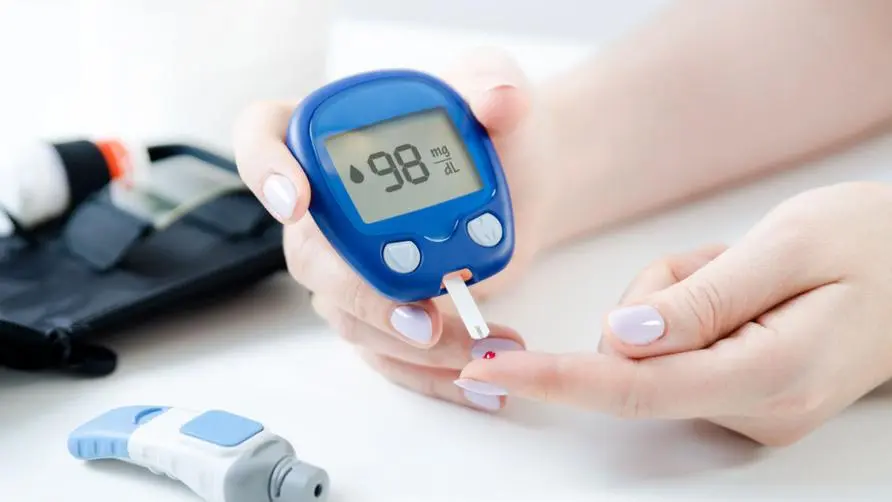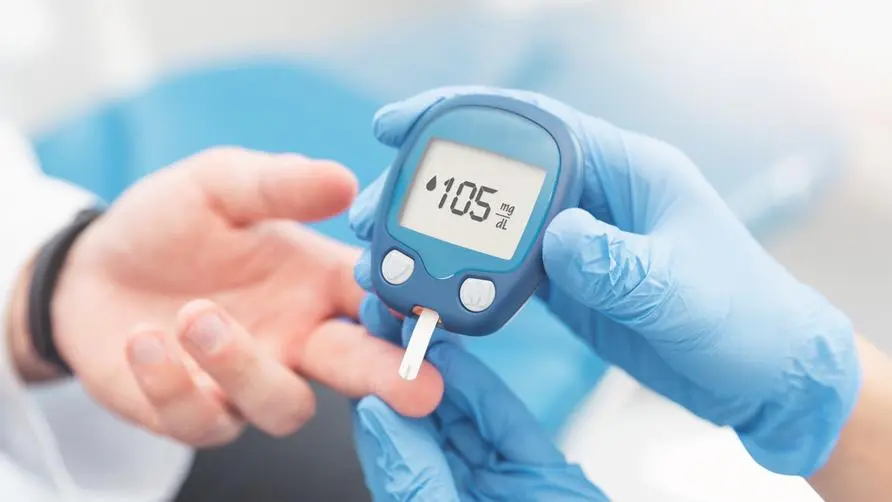Diabetes can't just control sugar? Doctor: Failure to do "two things" may affect heart and kidney function

Is there a high risk of multi-organ comorbidity in diabetes? Doctor: It’s like having a myocardial infarction
The number of people with diabetes in Taiwan is gradually increasing and even getting younger, so disease control and prevention are urgent. Dr. Ma Wenya, director of the Metabolic Endocrinology Department of Xindian Cardinal Tien Hospital, said that diabetic patients not only need to regularly track blood sugar, but also meet the “ABC” target rate: glycated hemoglobin (A1C) lower than 7%, blood pressure lower than 130/80mmHg, and Cholesterol (LDL) is less than 100 mg, and the three values are equally important. If any factor is imbalanced, it may cause lesions in blood vessels, thereby affecting the blood supply to organs.
Dr. Ma Wenya explained that many people mistakenly believe that diabetes is just “high blood sugar.” This attitude of ignoring the disease is actually very dangerous. “The risk of cardiovascular disease in patients with diabetes is higher than that of ordinary people, and is equivalent to the risk of a ‘myocardial infarction’!” Especially men who often socialize, have high work pressure, and have heavy responsibilities should give priority to controlling these risk factors.
As for treating diabetes in the elderly, Dr. Ma Wenya pointed out that the goal should be to avoid “hypoglycemia” and assess the patient’s risk of complications. Among the elderly, low blood sugar may cause numbness in the hands and feet, palpitations, trembling throughout the body, and even unconsciousness, increasing the risk of falls or other accidents. In addition, hypoglycemia will also affect the patient’s compliance with medication, making blood sugar difficult to control.
The top priority in managing diabetes is blood sugar control + organ protection.
Dr. Ma Wenya said that for patients who have been diagnosed with diabetes, two things are particularly important: first, blood sugar must be well controlled; second, we must focus on protecting various organs of the body. Dr. Ma Wenya explained that in addition to controlling blood sugar, the goal of treating diabetes is to ensure that the patient’s other organs do not lose function prematurely before the patient’s heart stops functioning. In other words, organ protection is the top priority in diabetes treatment.
In terms of drug treatment, Dr. Ma Wenya pointed out that in addition to the ability of newly launched drugs to lower blood sugar, their protective effects on organs will also be evaluated. “Many patients will have this doubt, do the drugs I take have a protective effect on my body’s organs? In fact, all drugs before they are put on the market must confirm that they will not only cause no harm to the body, but also preferably have additional Organ protective effects, such as protection of the kidneys.”
Dr. Ma Wenya further explained that if patients only focus on the side effects of drugs and ignore the “positive effects” they bring, then they will lose the opportunity to use drugs to maintain and improve their health. It is worth mentioning that Taiwan is a “big dialysis country” in the world, with the prevalence rate of dialysis treatment ranking highest in the world; and about half of the patients, 1-2%, are diabetic patients.
Dr. Ma Wenya believes that the phenomenon of “diabetic comorbidity” in diabetic patients highlights the importance of kidney protection in diabetic patients. In recent years, relevant units have made a lot of efforts to encourage the public to regularly monitor urinary protein and provide relevant examinations in medical institutions at all levels. Active health education and surveillance policies have also played a significant role in the prevention and control of diabetes.
Does one dose of insulin have to be taken for life? Doctor’s rebuttal: Adjustments need to be made based on the patient’s condition
However, patients’ fear of taking medicine may hinder the progress of diabetes management. “Patients often worry that drugs such as ‘insulin’ will harm the kidneys? Faced with this doubt, it is recommended that patients understand the indicators that reflect kidney function to help themselves.” For example, changes in “urinary protein” can indicate kidney function. Functional improvements. If you see that the urine protein drops after taking the medicine, you no longer need to worry about the medicine harming the kidneys. In addition, there are many arguments supporting that the active intervention of insulin not only does not harm the kidneys, but also has a protective effect on the kidneys.
Dr. Ma Wenya pointed out that many patients have a myth that taking insulin is equivalent to severe deterioration of kidney function, or that taking insulin means entering the end stage of diabetes. This idea is not entirely correct. For diabetics, insulin supplementation is like withdrawing cash from an ATM when there is not enough money in the wallet. Appropriate supplementation helps the body function normally. The progression of diabetes is caused by many factors, including insulin resistance or insufficient insulin secretion; and as age increases, insulin secretion does decline, so insulin supplementation is needed to assist the body in functioning.
“For patients who have just become ill, if the blood sugar level is abnormally high, insulin injection is like a ’temporary rescue pitcher’, which is a temporary but necessary treatment. Once the blood sugar is stable, you can discuss other treatment measures with your doctor.” However, long-term diabetic patients, especially those with diabetes for more than 10 years, may indeed need long-term insulin supplementation.
The biggest difficulty in treating diabetes? Patients are most afraid of having only a little knowledge of the disease
Dr. Ma Wenya explained that the difficulty faced by many patients is their limited understanding of diabetes. For example, patients understand that they need to control their diet, but due to resistance to the disease or personal preferences, the results are often unsatisfactory. Therefore, “Weijiao” plays a very important role here. “When patients see the red letter on the examination report again, they may feel frustrated. This is where doctors and health teachers need to patiently guide and encourage patients.”
Dr. Ma Wenya said that the prevention, treatment and control of diabetes need to first create a more friendly environment for diabetic patients. For example, if patients have more choices in dietary choices and exercise, it will have positive implications for controlling the disease. The important thing is that if both active sugar control and organ protection can be achieved, diabetic patients can live a normal life and even be healthier than ordinary people.
Further reading:





